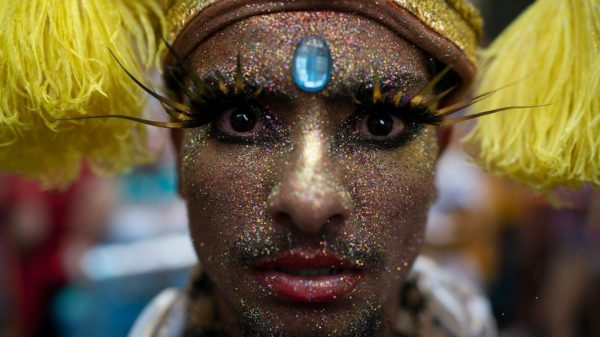Advertisement

For the past 20 months, President Trump has received free personal legal services from one of America’s highest-paid lawyers, who has traveled around the country and across the ocean to defend him in the special counsel’s inquiry and press Ukraine to investigate a political rival and unfounded conspiracy theories.
The lawyer, of course, is Rudolph W. Giuliani, but Mr. Trump did not mention Mr. Giuliani or his unpaid labor on the annual financial disclosure he filed in May, which requires that the value and source of gifts — including free legal work — be publicly listed.
That requirement is cut and dried, said Kathleen Clark, a law professor at Washington University in St. Louis. She cited guidance from the Office of Government Ethics, issued in November 2017, that states federal officials must disclose “gifts of legal defenses — in kind or by payment of the fees.”
“The purpose is to ensure the public has an opportunity to see whether there is any kind of corrupting influence,” said Ms. Clark, who has written on ethics issues involving government employees in need of lawyers.
During the presidency of Bill Clinton, for example, congressional Republicans and others suggested that some donors to Mr. Clinton’s legal defense funds were currying favor. The names of the donors and the amounts of their gifts were disclosed.
For his paying clients, Mr. Giuliani has been able to provide access to senior officials across the Trump administration.
Elizabeth Horton, a spokeswoman for the Office of Government Ethics, said she could not discuss whether Mr. Giuliani’s pro bono services should have been included in Mr. Trump’s financial disclosure. But in the past, when the agency has received complaints suggesting that information is missing, it has typically followed up with the office where the person works — in this case, the White House.
Scott F. Gast, the top White House ethics lawyer, did not respond to requests to discuss the matter; neither did Mr. Giuliani and his lawyer. Stephanie Grisham, the White House press secretary, also declined to comment.
Mr. Giuliani, who is at the center of events that have led to the impeachment process now underway, began representing the president around April 2018, during the investigation by the special counsel, Robert S. Mueller III. “Based on a 30-year relationship with Mr. Trump, he was asked to serve in his capacity without compensation,” Mr. Giuliani’s lawyer, Faith Miller, said during divorce proceedings last year.
The economic value of his services to the president could be considerable. Mr. Giuliani has said that at the height of the Mueller inquiry, representing Mr. Trump amounted to a full-time job. Partners at major law firms can bill their clients as much as $1,500 an hour. To serve as Mr. Trump’s lawyer, Mr. Giuliani left a firm where he was making $6 million a year.
“I knew when I took it on that it would reduce my income,” he said in September.
Late last year, Mr. Giuliani, who has described the president as being treated “very, very unfairly,” pursued leads on debunked conspiracy theories involving Ukraine’s meddling in the 2016 election that he said might show the special counsel investigation was built on a faulty premise.
And though the special counsel finished his work in March, Mr. Giuliani has continued to act on the president’s behalf by pressuring officials in Ukraine to announce an inquiry into former Vice President Joseph R. Biden Jr., one of the Democratic front-runners to oppose Mr. Trump in 2020.
These actions were “100 percent in my role as the defense lawyer of the president,” Mr. Giuliani said in October. He traveled extensively, paying his own expenses, he said, or piggybacking them onto work for other clients.
Throughout the Trump presidency, Mr. Giuliani has enjoyed a robust business serving wealthy clients by providing advice and extraordinary access to the highest level of government.
On behalf of a Turkish money launderer, Mr. Giuliani brought his case directly to the president and secretary of state in the Oval Office; for a Venezuelan oil oligarch, he met with senior officials at the Justice Department in Washington. He escorted a former penny-stock trader seeking Ukrainian energy deals to the state funeral of former President George Bush.
In 2017, Mr. Trump failed to disclose that he owed more than $100,000 to a previous personal lawyer, Michael D. Cohen, who had paid hush money on the president’s behalf to the pornographic film actress Stormy Daniels. After omitting it from his 2017 form, he listed it in a footnote the following year.
The president’s annual financial disclosure is required under the Ethics in Government Act of 1978, adopted after the Watergate scandal to “promote the integrity of public officials and institutions.” The purpose is to let the public know about businesses or property that top government officials have a stake in, or other financial ties that could create a conflict of interest.
Unlike other federal employees, presidents and vice presidents are allowed to accept gifts with few limitations. They face one major requirement: They must list the value and source of any goods or services, currently above a threshold of $390, on their annual forms.
There remains one possible loophole that Mr. Giuliani and Mr. Trump could turn to as an explanation.
Under federal campaign finance law, if an individual lawyer provides legal advice to a candidate without compensation, “the work is considered personal volunteer activity,” the Federal Election Commission says.
But the law limits any unpaid travel expenses associated with the free legal services — meaning a trip to Europe by Mr. Giuliani as part of this work would turn into an illegal contribution to Mr. Trump, unless the expense was reimbursed by the campaign.
“It kind of puts him in a box,” said Matthew T. Sanderson, a campaign finance lawyer who has advised several Republican presidential hopefuls, including Senator Rand Paul of Kentucky and Rick Perry, the former Texas governor and energy secretary.
Mr. Giuliani, other campaign finance lawyers said, might have a hard time defending the assertion that all of his legal advice to Mr. Trump relates to his status as a candidate, given that much of the effort involves actions Mr. Trump has taken while serving as president. It also would add weight to the argument that the work Mr. Giuliani was doing on Ukraine was related to Mr. Trump’s re-election effort, two of the lawyers said
“If what he is doing for the president is for the campaign, how does he argue that the Ukraine corruption issue is not about the election?” asked Larry Noble, the F.E.C.’s former general counsel. “They are inconsistent arguments.”
In late November, a liberal watchdog organization, Citizens for Responsibility and Ethics in Washington, asked the Justice Department and the Office of Government Ethics to investigate the nondisclosure, saying it “seemingly violates federal law and undermines the integrity of the public financial disclosure program.”
“We’re not saying that President Trump can’t accept the free legal work,” said Virginia Canter, a lawyer for the group, which frequently sues the Trump administration. “What he does have to do is disclose the value and nature of any pro bono services.”
Mr. Clinton, who was under investigation by Congress and a special counsel for much of his time in office, raised more than $10 million through two funds to pay legal bills. Donations were capped at $1,000 in the first of the funds, and at $10,000 in the second.
During the his presidency, a conservative watchdog, Judicial Watch, claimed in a lawsuit that Mr. Clinton’s personal insurer was bending its coverage rules to pay some of his legal bills, saying it was trying to win “gratitude and favor” to create an agreeable “regulatory environment.” The suit did not succeed.
Ms. Clark, the law professor, said that Mr. Clinton and Mr. Trump were in parallel situations, in that both relied on donations to meet substantial legal costs, but reiterated that donations to the Clinton fund were capped at $10,000 a year. The value of a single day of Mr. Giuliani’s donated services would far exceed that. “There is no comparison in the size of the individual gifts,” she said.


